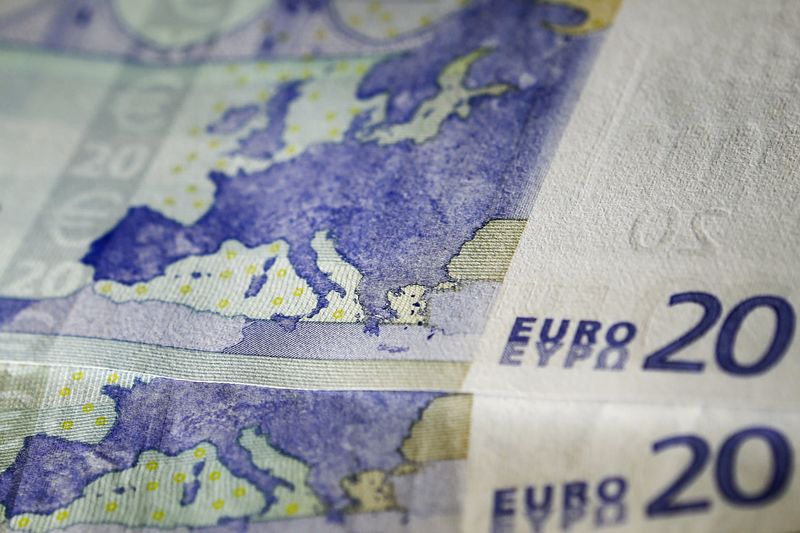Investing.com - The euro slid to session lows against the dollar and the yen on Wednesday after data showing that euro area inflation was revised lower for August added to fears that the European Central Bank may scale up its stimulus program.
EUR/USD hit lows of 1.1231, down from around 1.1255 ahead of the data, while EUR/JPY was at 135.21, down 0.38% for the day.
The euro moved lower after Eurostat said the final reading of the euro zone annual inflation rate was revised to 0.1% from an initial estimate of 0.2%.
Core inflation, which excludes volatile food and energy prices, was unchanged at 0.3% from a month earlier and 0.9% on a year-over-year basis.
The weak inflation data added to concerns that the ECB may expand its €60 billion a month quantitative easing program.
The central bank cut its inflation forecasts at its latest meeting earlier this month, citing the impact of the stronger euro and weak oil prices.
The ECB now expects annual inflation of 0.1% in 2015, down from 0.3% previously.
Earlier Wednesday, Reuters reported that ECB Vice President Vitor Constancio said the bank has scope to purchase more assets as its quantitative easing has been small compared to similar schemes elsewhere.
Meanwhile, the U.S. dollar index, which measures the greenback’s strength against a trade-weighted basket of six major currencies, edged up 0.12% to 95.87, helped by the weaker euro.
The dollar continued to trade in recent ranges as investors awaited the outcome of the Federal Reserve’s two-day policy setting meeting which was beginning later in the day.
Investors remained on edge amid uncertainty over whether the Fed would hike short term interest rates for the first time in almost a decade on Thursday.
An increase in interest rates would boost the greenback by making it more attractive to yield-seeking investors.
The U.S. was to release data on consumer inflation later Wednesday.
Recent U.S. data has indicated that inflation is still weak, due to low oil prices and the stronger dollar, even as the labor market staged a strong recovery and the economy posted five consecutive quarters of growth.
Fed Chair Janet Yellen has said that an interest rate increase is data dependent but has also indicated that she expects to begin raising rates before the end of the year.
